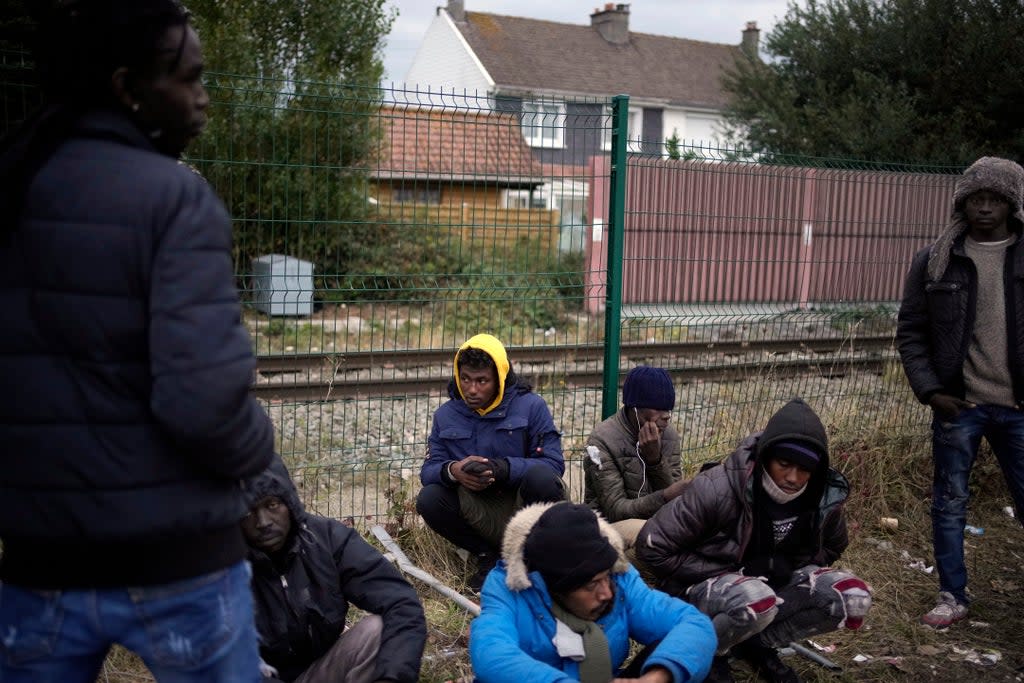The UK and France are still ignoring the realities of life for refugees and migrants in Calais

This week marks five years since French authorities began an operation to dismantle the “Jungle” camp in Calais, destroying the makeshift shelters, restaurants and places of worships that had housed up to 10,000 people at its peak.
At the time, conditions for refugees in Calais were well known in the UK – the issue was regularly debated in parliament and the destruction of the camp was covered widely. But once it was gone, the visible symbol of the humanitarian crisis on the UK-French border was gone too. And with it went much of the attention.
Today, the situation in Calais receives little consideration here in the UK. While we’ve seen renewed focus on the numbers of boats crossing the Channel, there is rarely any mention of what people go through in Calais before crossing, or why some feel unable to stay in France.
Thus, one of the repeated refrains of our government – that people should stay in France because it is “safe” – goes largely unchallenged and many do claim asylum there. But the reality is, conditions for refugees in Calais are among the worst they’ve ever been. Just 30km from the UK, the suffering of displaced people is constant and severe.
French authorities remain determined to ensure that no such camp develops again. This has resulted in an active policy of “evictions” of any locations where displaced people gather – be it woods, fields, car parks or industrial wasteland.
According to a recent report by Human Rights Watch, the aim of these operations is “to push migrant adults and children out of Calais”, but in fact the evictions have not stopped people from travelling to the UK-French border in the hope of somehow reaching Britain. Indeed, the numbers of refugees in northern France has been growing in recent months, and estimates suggest around 2,000 are currently in Calais.
Life for displaced people in and around Calais is exhausting, stressful and dangerous. The police travel to sites where refugees are known to gather. Any tents or tarpaulins in the area are destroyed, while sleeping bags and blankets and other belongings are often confiscated. Those who have their shelters wrecked are left further exposed to the elements, soaked and freezing because the police have taken what little protection they have.
When I visited Calais in 2016 I was shocked to see rubber bullets and teargas canisters left behind after police used them against residents of the Jungle. But, depressingly, the authorities’ use of these weapons has become increasingly normalised in the years since – just a few months ago a child was said to have been injured by a rubber bullet during an eviction.
With little to no support from state actors, a handful of charities work to monitor police violence and to provide essential services and supplies to refugees in northern France. The organisation Collective Aid distributes hundreds of items of clothing each day, whilst the Calais Food Collective supplies dried goods and hundreds of litres of water each week. Meanwhile, in circumstances where a working phone can literally be the difference between life and death for people trying to cross the Channel, Refugee Info Bus travels between different sites providing phone charging, repairs and wifi.
These and other grassroots groups are stepping in to respond to a humanitarian crisis that both the British and French governments have failed to address, and in fact are exacerbating. The UK has spent millions on the construction of walls and fences across Calais, while the French authorities’ eviction operations get ever more frequent. These actions do nothing to stop people coming to Calais or trying to cross to the UK, they only serve to make conditions worse and push an incredibly vulnerable community further to the margins.
As another winter approaches, it is appalling to think that people will be having their tents and belongings taken away despite freezing weather. Charities on the ground are urging the authorities to stop the evictions and uphold the rights of refugees in France. Until and unless this happens, I hope our own government will think twice before describing conditions in Calais as “safe”.
Lord Dubs is a Labour peer and the former MP for Battersea
Read More
Making the Covid vaccine compulsory for NHS staff is the right choice | Sean O’Grady
Opinion: Aha! It’s time for Richard Madeley to be off our screens
Opinion: James Michael Tyler gave us the most moving depiction of unrequited love

